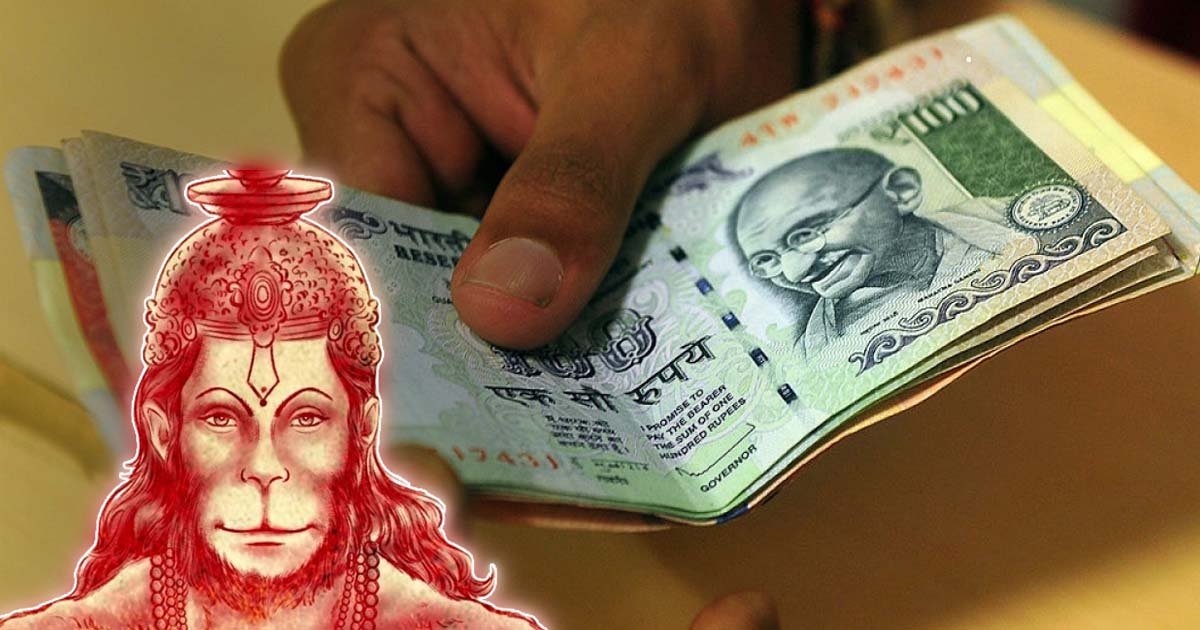₹10 Coin ಭಾರತ ಸರ್ಕಾರ ಮತ್ತು ಭಾರತೀಯ ರಿಸರ್ವ್ ಬ್ಯಾಂಕ್ (RBI) ನಿಯತಕಾಲಿಕವಾಗಿ ಸುಗಮ ವಹಿವಾಟುಗಳನ್ನು ಖಚಿತಪಡಿಸಿಕೊಳ್ಳಲು ಮತ್ತು ನಕಲಿ ಮತ್ತು ನಕಲಿಗಳಂತಹ ಕಾನೂನುಬಾಹಿರ ಚಟುವಟಿಕೆಗಳನ್ನು ತಡೆಗಟ್ಟಲು ಹೊಸ ನಿಯಮಗಳನ್ನು ಪರಿಚಯಿಸುತ್ತದೆ. ಇತ್ತೀಚೆಗೆ, ₹ 10 ಮತ್ತು ₹ 20 ನಾಣ್ಯಗಳಿಗೆ ಸಂಬಂಧಿಸಿದಂತೆ ಗಮನಾರ್ಹ ಬದಲಾವಣೆಗಳನ್ನು ಜಾರಿಗೆ ತರಲಾಗಿದ್ದು, ಈ ಮುಖಬೆಲೆಯನ್ನು ಸ್ವೀಕರಿಸಲು ವ್ಯಾಪಾರಿಗಳು ಮತ್ತು ಸಾರ್ವಜನಿಕರಲ್ಲಿನ ಗೊಂದಲ ಮತ್ತು ಹಿಂಜರಿಕೆಯನ್ನು ಹೋಗಲಾಡಿಸಲಾಗಿದೆ.
ಐತಿಹಾಸಿಕ ಸಂದರ್ಭ
2016ರಲ್ಲಿ ಕಪ್ಪುಹಣ ಮತ್ತು ನಕಲಿ ನೋಟುಗಳನ್ನು ತಡೆಯಲು ಕೇಂದ್ರ ಸರ್ಕಾರ ₹500 ಮತ್ತು ₹1,000 ನೋಟುಗಳನ್ನು ರದ್ದುಗೊಳಿಸಿತ್ತು. ನಂತರ ಹೊಸ ₹ 500 ಮತ್ತು ₹ 2,000 ನೋಟುಗಳನ್ನು ಪರಿಚಯಿಸಲಾಯಿತು, ಆದರೆ ಕಪ್ಪು ಹಣ ಚಲಾವಣೆಯಲ್ಲಿ ಅದರ ಪಾತ್ರದ ಬಗ್ಗೆ ಕಳವಳ ವ್ಯಕ್ತಪಡಿಸಿದ ಕಾರಣ 2023 ರಲ್ಲಿ ₹ 2,000 ನೋಟುಗಳನ್ನು ಹಿಂತೆಗೆದುಕೊಳ್ಳಲಾಯಿತು. ಪ್ರಸ್ತುತ, ಭಾರತೀಯ ಕರೆನ್ಸಿ ₹1, ₹2, ₹5, ₹10 ಮತ್ತು ₹20 ನಾಣ್ಯಗಳನ್ನು ಒಳಗೊಂಡಿದೆ.
₹10 ಮತ್ತು ₹20 ನಾಣ್ಯಗಳನ್ನು ವಿತರಿಸಲಾಗಿದೆ
ಅಧಿಕೃತ ಸ್ಥಾನಮಾನದ ಹೊರತಾಗಿಯೂ, ₹10 ಮತ್ತು ₹20 ನಾಣ್ಯಗಳು ಸಾರ್ವಜನಿಕರಲ್ಲಿ ವ್ಯಾಪಕ ಹಿಂಜರಿಕೆ ಮತ್ತು ಗೊಂದಲವನ್ನು ಎದುರಿಸುತ್ತಿವೆ. ಅವರ ರದ್ದತಿಯ ವದಂತಿಗಳು ಹರಡುತ್ತಿದ್ದಂತೆ, ವ್ಯಾಪಾರಿಗಳು ಮತ್ತು ಗ್ರಾಹಕರು ನಿರಾಸಕ್ತಿ ತೋರಿಸಿದರು. ಅನೇಕ ಅಂಗಡಿ ಮಾಲೀಕರು ಈ ನಾಣ್ಯಗಳನ್ನು ದೊಡ್ಡ ಪ್ರಮಾಣದಲ್ಲಿ ಸಂಗ್ರಹಿಸಿದರು ಆದರೆ ಅವುಗಳನ್ನು ಸ್ವೀಕರಿಸಲು ಅಥವಾ ವಿನಿಮಯ ಮಾಡಿಕೊಳ್ಳಲು ಇಷ್ಟವಿರಲಿಲ್ಲ, ಇದು ಸಾಕಷ್ಟು ಅನಾನುಕೂಲತೆಯನ್ನು ಉಂಟುಮಾಡಿತು.
ನಾಣ್ಯಗಳ ಬಗ್ಗೆ RBI ಸ್ಪಷ್ಟತೆ
ಗೊಂದಲವನ್ನು ಪರಿಹರಿಸಲು, ಆರ್ಬಿಐ ₹10 ಮತ್ತು ₹20 ನಾಣ್ಯಗಳು ಕಾನೂನುಬದ್ಧ ಟೆಂಡರ್ ಮತ್ತು ಎಲ್ಲಾ ವಹಿವಾಟುಗಳಲ್ಲಿ ಸ್ವೀಕರಿಸಬೇಕು ಎಂದು ಪುನರುಚ್ಚರಿಸಿತು. ಈ ನಾಣ್ಯಗಳನ್ನು ಸ್ವೀಕರಿಸಲು ನಿರಾಕರಿಸುವುದು ಭಾರತೀಯ ದಂಡ ಸಂಹಿತೆಯ ಸೆಕ್ಷನ್ 124A ಅಡಿಯಲ್ಲಿ ಶಾಸನಬದ್ಧ ಅಪರಾಧವಾಗಿದೆ, RBI ನ ಹೊಸ ನಿಯಮಾವಳಿ ಪ್ರಕಾರ.
RBI ನ ಹೊಸ ನಿಯಮಗಳ ಕಾನೂನು ಪರಿಣಾಮಗಳು
ಭಾರತೀಯ ದಂಡ ಸಂಹಿತೆಯ ಸೆಕ್ಷನ್ 124A ಅಡಿಯಲ್ಲಿ, ಭಾರತ ಸರ್ಕಾರವು ಅನುಮೋದಿಸಿದ ನಾಣ್ಯಗಳನ್ನು ಸ್ವೀಕರಿಸಲು ನಿರಾಕರಿಸಿದರೆ ಮೂರು ವರ್ಷಗಳವರೆಗೆ ಜೈಲು ಶಿಕ್ಷೆ ಮತ್ತು ದಂಡವನ್ನು ವಿಧಿಸಲಾಗುತ್ತದೆ. ಈ ನಿಯಂತ್ರಣವು ಎಲ್ಲಾ ಕಾನೂನು ಟೆಂಡರ್ಗಳ ಸುಗಮ ಪರಿಚಲನೆಯನ್ನು ಖಾತ್ರಿಗೊಳಿಸುತ್ತದೆ ಮತ್ತು ದೈನಂದಿನ ವಹಿವಾಟುಗಳಿಗೆ ಅಡ್ಡಿಯಾಗುವುದನ್ನು ತಡೆಯುತ್ತದೆ.
ಕಡ್ಡಾಯ ಸ್ವೀಕಾರದ ಕುರಿತು RBI ನ ಹೊಸ ನಿಯಮಗಳ ಮುಖ್ಯಾಂಶಗಳು:
- ಎಲ್ಲಾ ವ್ಯಾಪಾರಿಗಳು ಮತ್ತು ವ್ಯಕ್ತಿಗಳು ವಹಿವಾಟಿನಲ್ಲಿ ₹10 ಮತ್ತು ₹20 ನಾಣ್ಯಗಳನ್ನು ಸ್ವೀಕರಿಸಬೇಕು.
- ಈ ನಾಣ್ಯಗಳನ್ನು ಸ್ವೀಕರಿಸಲು ನಿರಾಕರಿಸಿದರೆ ಕಾನೂನು ಕ್ರಮಕ್ಕೆ ಕಾರಣವಾಗುತ್ತದೆ.
- ಕಾನೂನು ಪರಿಣಾಮಗಳು ಮೂರು ವರ್ಷಗಳವರೆಗೆ ಜೈಲು ಶಿಕ್ಷೆ ಮತ್ತು ವಿತ್ತೀಯ ದಂಡವನ್ನು ಒಳಗೊಂಡಿವೆ.
ಸಾಮಾಜಿಕ ಜಾಗೃತಿ
₹10 ಮತ್ತು ₹20 ನಾಣ್ಯಗಳ ಕಾನೂನು ಸ್ಥಿತಿಯ ಬಗ್ಗೆ ಸಾರ್ವಜನಿಕರಲ್ಲಿ ಜಾಗೃತಿ ಮೂಡಿಸಲು ಸರ್ಕಾರ ಮತ್ತು ಆರ್ಬಿಐ ಕೆಲಸ ಮಾಡುತ್ತಿದೆ. ಈ ನಾಣ್ಯಗಳನ್ನು ಕಡ್ಡಾಯವಾಗಿ ಸ್ವೀಕರಿಸುವ ಬಗ್ಗೆ ಸಾರ್ವಜನಿಕರಿಗೆ ಮತ್ತು ವ್ಯಾಪಾರಿಗಳಿಗೆ ತಿಳಿಸಲು ಮಾಹಿತಿ ಅಭಿಯಾನಗಳನ್ನು ನಡೆಸಲಾಗುತ್ತಿದೆ.
ಕಾಳಜಿಗಳನ್ನು ತಿಳಿಸುವುದು
₹ 10 ಮತ್ತು ₹ 20 ನಾಣ್ಯಗಳನ್ನು ಸ್ವೀಕರಿಸಲು ಇಷ್ಟವಿಲ್ಲದಿರುವುದು ಅವುಗಳ ಸಿಂಧುತ್ವದ ಬಗ್ಗೆ ತಪ್ಪು ಕಲ್ಪನೆಗಳು ಮತ್ತು ವದಂತಿಗಳಿಂದ ಉಂಟಾಗುತ್ತದೆ. ಆರ್ಬಿಐ ಈ ಕಳವಳಗಳನ್ನು ಹೇಗೆ ಪರಿಹರಿಸುತ್ತದೆ ಎಂಬುದು ಇಲ್ಲಿದೆ:
ಸಾರ್ವಜನಿಕ ಸಂವಹನ
ಈ ನಾಣ್ಯಗಳ ಕಾನೂನು ಸ್ಥಿತಿಯನ್ನು ಸ್ಪಷ್ಟಪಡಿಸುವ ಸಾರ್ವಜನಿಕ ಪ್ರಕಟಣೆಗಳು ಮತ್ತು ಪ್ರಕಟಣೆಗಳನ್ನು RBI ಬಿಡುಗಡೆ ಮಾಡಿದೆ.
ಸಾರ್ವಜನಿಕರಿಗೆ ಧೈರ್ಯ ತುಂಬಲು ಮತ್ತು ₹10 ಮತ್ತು ₹20 ನಾಣ್ಯಗಳ ಸತ್ಯಾಸತ್ಯತೆಯ ಬಗ್ಗೆ ತಪ್ಪು ಕಲ್ಪನೆಗಳನ್ನು ಹೋಗಲಾಡಿಸಲು ಪ್ರಯತ್ನಿಸಲಾಗಿದೆ.
ಬ್ಯಾಂಕ್ ಒಳಗೊಳ್ಳುವಿಕೆ
- ನಾಣ್ಯಗಳ ವಿನಿಮಯವನ್ನು ಸುಲಭಗೊಳಿಸಲು ಮತ್ತು ಅವುಗಳ ತಕ್ಷಣದ ಸ್ವೀಕಾರವನ್ನು ಖಚಿತಪಡಿಸಿಕೊಳ್ಳಲು ಬ್ಯಾಂಕುಗಳಿಗೆ ಸಲಹೆ ನೀಡಲಾಗುತ್ತದೆ.
- ನಾಣ್ಯ ವಹಿವಾಟುಗಳನ್ನು ಪರಿಣಾಮಕಾರಿಯಾಗಿ ನಿರ್ವಹಿಸಲು ಬ್ಯಾಂಕ್ ಉದ್ಯೋಗಿಗಳಿಗೆ ತರಬೇತಿ ಅವಧಿಗಳನ್ನು ನಡೆಸಲಾಗುತ್ತದೆ.
ಕಾನೂನು ನಿಬಂಧನೆಗಳ ಜಾರಿ - ಈ ನಾಣ್ಯಗಳನ್ನು ಸ್ವೀಕರಿಸಲು ನಿರಾಕರಿಸುವವರ ವಿರುದ್ಧ ಕಾನೂನು ನಿಬಂಧನೆಗಳನ್ನು ಕಟ್ಟುನಿಟ್ಟಾಗಿ ಜಾರಿಗೊಳಿಸುವುದು.
- ಕಾನೂನು ಕ್ರಮಗಳು ಅಕ್ರಮ ಕರೆನ್ಸಿ ನಿರಾಕರಣೆಯ ವಿರುದ್ಧ ನಿರೋಧಕವಾಗಿ ಕಾರ್ಯನಿರ್ವಹಿಸುತ್ತವೆ.
ದೈನಂದಿನ ವಹಿವಾಟಿನ ಮೇಲೆ ಪರಿಣಾಮ
ಸುಗಮ ದೈನಂದಿನ ವಹಿವಾಟುಗಳಿಗೆ ₹10 ಮತ್ತು ₹20 ನಾಣ್ಯಗಳ ಸ್ವೀಕಾರವನ್ನು ಖಚಿತಪಡಿಸಿಕೊಳ್ಳುವುದು ನಿರ್ಣಾಯಕವಾಗಿದೆ. ಹೊಸ ನಿಯಮಗಳು ವಿವಿಧ ಮಧ್ಯಸ್ಥಗಾರರ ಮೇಲೆ ಹೇಗೆ ಪರಿಣಾಮ ಬೀರುತ್ತವೆ ಎಂಬುದು ಇಲ್ಲಿದೆ:
ವ್ಯಾಪಾರಿಗಳು ಮತ್ತು ಅಂಗಡಿಯವರು
- ವ್ಯಾಪಾರಿಗಳು ಈಗ ಈ ನಾಣ್ಯಗಳನ್ನು ಸ್ವೀಕರಿಸಬೇಕು, ಇದು ಗ್ರಾಹಕರಿಗೆ ಅನಾನುಕೂಲತೆಯನ್ನು ಕಡಿಮೆ ಮಾಡುತ್ತದೆ.
- ಅಂಗಡಿ ಮಾಲೀಕರಲ್ಲಿ ಸರಿಯಾದ ತರಬೇತಿ ಮತ್ತು ಮಾಹಿತಿಯ ಪ್ರಸಾರವು ಸುಗಮ ಪರಿವರ್ತನೆಗೆ ಸಹಾಯ ಮಾಡುತ್ತದೆ.
ಗ್ರಾಹಕರು
- ಗ್ರಾಹಕರು ನಾಣ್ಯ ವಹಿವಾಟುಗಳೊಂದಿಗೆ ಕಡಿಮೆ ಸಮಸ್ಯೆಗಳನ್ನು ಎದುರಿಸುತ್ತಾರೆ, ಅವರು ಸರಿಯಾದ ಬದಲಾವಣೆಯನ್ನು ಸ್ವೀಕರಿಸುತ್ತಾರೆ ಮತ್ತು ತಮ್ಮ ನಾಣ್ಯಗಳನ್ನು ಜಗಳ-ಮುಕ್ತವಾಗಿ ಬಳಸಬಹುದು ಎಂದು ಖಚಿತಪಡಿಸಿಕೊಳ್ಳುತ್ತಾರೆ.
- ಕರೆನ್ಸಿ ವ್ಯವಸ್ಥೆಯಲ್ಲಿ ಹೆಚ್ಚಿದ ವಿಶ್ವಾಸ.
ಬ್ಯಾಂಕುಗಳು
- ನಾಣ್ಯಗಳ ಚಲಾವಣೆ ಮತ್ತು ಸ್ವೀಕಾರವನ್ನು ಖಾತ್ರಿಪಡಿಸುವಲ್ಲಿ ಬ್ಯಾಂಕುಗಳು ಪ್ರಮುಖ ಪಾತ್ರವಹಿಸುತ್ತವೆ.
- ನಾಣ್ಯಗಳನ್ನು ಒಳಗೊಂಡ ಸುಗಮ ವಹಿವಾಟುಗಳನ್ನು ಸುಗಮಗೊಳಿಸಲು ಬ್ಯಾಂಕುಗಳು ಮತ್ತು RBI ನಡುವಿನ ವರ್ಧಿತ ಸಹಕಾರ.
₹10 ಮತ್ತು ₹20 ನಾಣ್ಯಗಳ ಸ್ವೀಕಾರವನ್ನು ಕಡ್ಡಾಯಗೊಳಿಸುವ RBI ನ ಹೊಸ ನಿಯಮಾವಳಿಯು ಗೊಂದಲವನ್ನು ನಿವಾರಿಸಲು, ಸುಗಮ ವಹಿವಾಟುಗಳನ್ನು ಖಚಿತಪಡಿಸಿಕೊಳ್ಳಲು ಮತ್ತು ಈ ನಾಣ್ಯಗಳ ಕಾನೂನು ಟೆಂಡರ್ ಸ್ಥಿತಿಯನ್ನು ಎತ್ತಿಹಿಡಿಯುವ ಗುರಿಯನ್ನು ಹೊಂದಿದೆ. ಈ ನಾಣ್ಯಗಳನ್ನು ಸ್ವೀಕರಿಸಲು ನಿರಾಕರಣೆ ವಿರುದ್ಧ ಕಾನೂನು ನಿಬಂಧನೆಗಳ ಜಾರಿಯು ಕರೆನ್ಸಿ ವ್ಯವಸ್ಥೆಯ ಸಮಗ್ರತೆ ಮತ್ತು ಕ್ರಿಯಾತ್ಮಕತೆಯನ್ನು ಕಾಪಾಡಿಕೊಳ್ಳಲು ನಿರ್ಣಾಯಕವಾಗಿದೆ.















